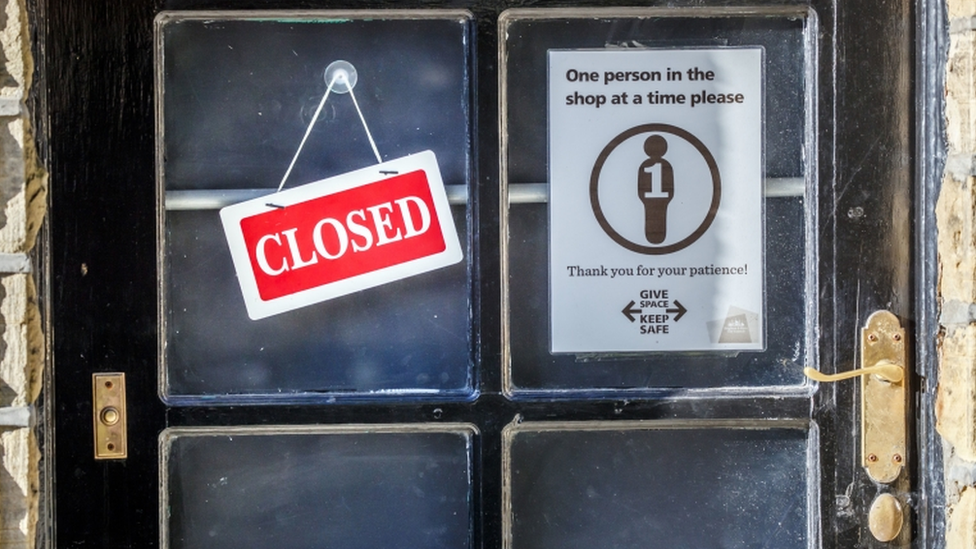Covid-19: Shoppers return to stores under England's new tier system
- Published
Shoppers queue as stores reopen in Birmingham
Shoppers have returned to the High Street in England, after non-essential retailers opened their doors at the end of a four-week national lockdown.
A three-tiered system of Covid-19 rules has now come into force in the nation, with gyms and businesses such as hairdressers also able to open.
More than 55 million people are in the strictest two tiers and cannot mix indoors with those in other households.
The government said it would "safeguard the gains made during the past month".
At a Downing Street briefing, Prime Minister Boris Johnson said he accepted that the tiered system was "tough", but insisted that regional restrictions and mass testing were the way to "keep the virus under control".
He said he hoped that places would be able "to come down the tiers" before Easter, while stressing that the tier restrictions would continue to be a "very important" part of battling coronavirus.
There were queues outside stores across England early on Wednesday as shoppers returned to High Street giants such as Primark.
And people arrived promptly to take advantage of a stock clearance sale at Debenhams department store from 07:00 GMT.
Some retailers are extending their trading hours to try to recoup the loss in sales over the lockdown.
It comes after a period which has seen the collapse of Topshop owner Arcadia group, women's fashion chain Bonmarché and the failure of Debenhams to secure a buyer - putting a total of more than 25,000 jobs at risk.
Footfall at UK shops was up by 64.5% compared to last week, but down by 24.1% on the same day last year, according to analyst Springboard.
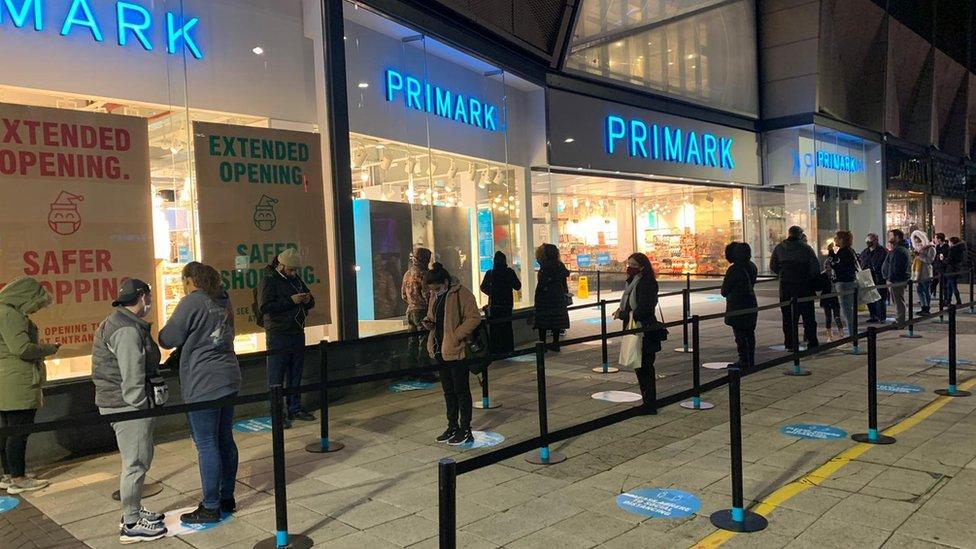
Queues were seen outside Primark in Birmingham early on Wednesday
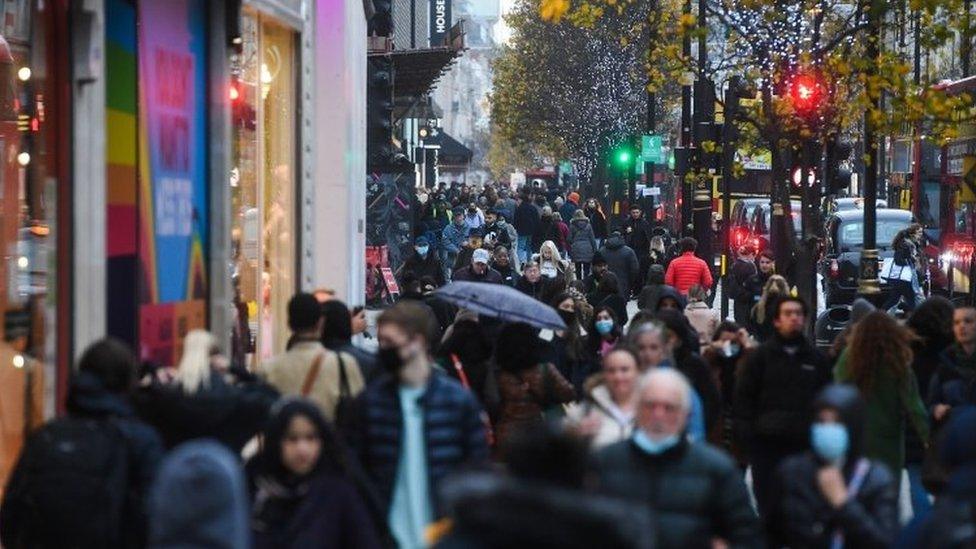
Shoppers also headed to London's Oxford Street
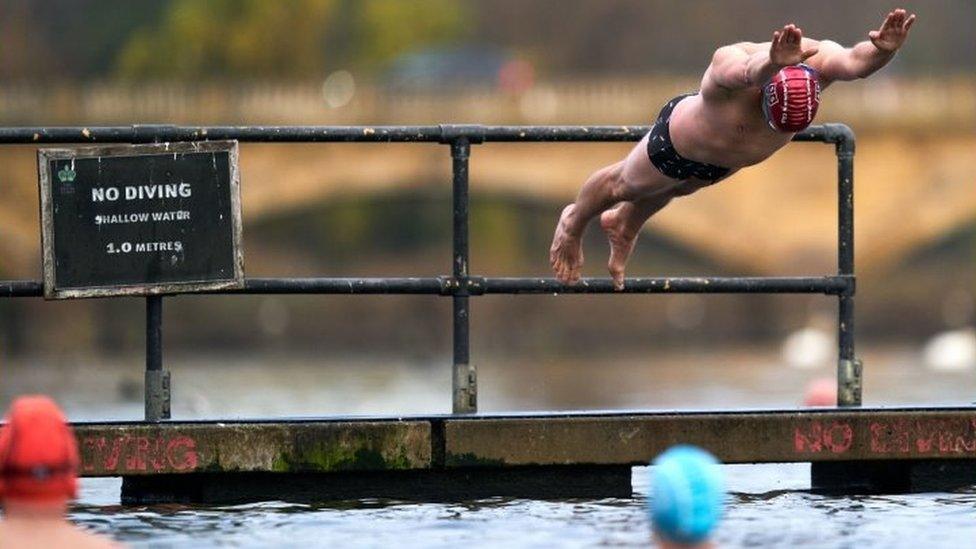
A swimmer takes to the water at London's Serpentine Swimming Club as outdoor swimming pools are also allowed to reopen
Jordan Roberts, 19, was among a dozen people queuing outside Selfridges in London's Oxford Street before the department store opened its doors - and shoppers were welcomed by store workers dressed as elves on roller skates.
She said she was there to do her Christmas shopping, adding: "It feels more enjoyable being in a store and things run out of stock online."
Another London shopper, Tamara Rass, 44, said she hit the stores early as she expected they would be busy.
"For me, it's a little bit of light at the end of the tunnel and getting back to normality," she said.
"There are things in store that I can't get online and I like to treat my daughter once a month."
Elsewhere, there were also reports of "steady" footfall in England's town centres.
Allow X content?
This article contains content provided by X. We ask for your permission before anything is loaded, as they may be using cookies and other technologies. You may want to read X’s cookie policy, external and privacy policy, external before accepting. To view this content choose ‘accept and continue’.
Allow X content?
This article contains content provided by X. We ask for your permission before anything is loaded, as they may be using cookies and other technologies. You may want to read X’s cookie policy, external and privacy policy, external before accepting. To view this content choose ‘accept and continue’.

Transport for London said 760,000 journeys were made on the London Underground network on Wednesday from the start of service until 10:00 GMT - up 14% on last week, but only 31% of normal demand.
There were 970,000 bus journeys made. This was up 8% on last week and 57% of pre-pandemic levels.
British Retail Consortium chief executive Helen Dickinson said businesses were looking forward to welcoming back customers, with billions lost in sales during the lockdown, adding "every purchase we make is a retailer helped, a job protected and a local community supported".
The government has also announced that people living in care homes in England will be able to have visits from family and friends by Christmas, if the visitors test negative for coronavirus.
And later on Wednesday about 10,000 fans will be allowed into six games in the English Football League for the first time, other than a few pilot games, since March.
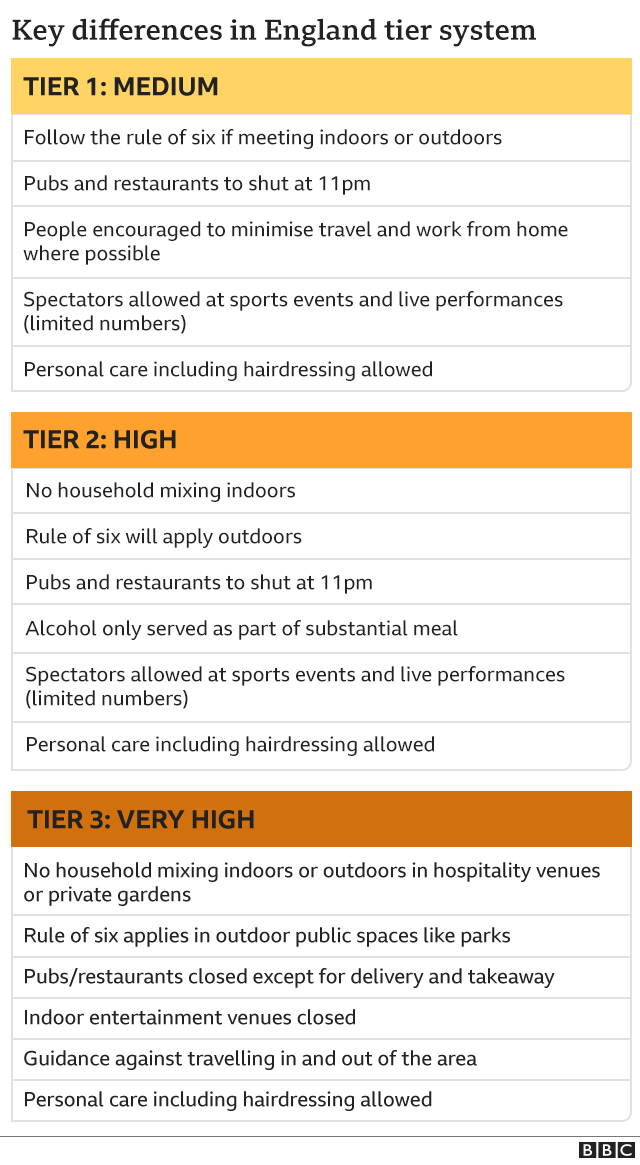

England's new tiered system was backed by MPs in a Commons vote just hours before it came into effect, despite 55 Tories voting against PM Boris Johnson's plan.
The latest restrictions are tougher than the previous tier system that was in place before the lockdown was introduced on 5 November.
Under the system every area of the country is in one of three tiers - medium (one), high (two) and very high (three) - with the vast majority of the population in the higher two tiers.
In tier two, people are not allowed to mix with anyone outside their household or support bubble indoors, although they can socialise in groups of up to six outdoors.
And in tier three, people must also not mix with anyone outside their household or support bubble indoors, or at most outdoor venues.
Scotland operates a five-tier system while Wales and Northern Ireland have their own coronavirus restrictions - with the latter currently in a two-week circuit breaker lockdown.
On Wednesday, a further 16,170 people tested positive for Covid-19 in the UK, while a further 648 deaths were reported within 28 days of a positive test.



How are the new tiers affecting you? Share your experiences by emailing haveyoursay@bbc.co.uk, external.
Please include a contact number if you are willing to speak to a BBC journalist. You can also get in touch in the following ways:
WhatsApp: +44 7756 165803
Tweet: @BBC_HaveYourSay, external
Please read our terms & conditions and privacy policy
If you are reading this page and can't see the form you will need to visit the mobile version of the BBC website to submit your question or comment or you can email us at HaveYourSay@bbc.co.uk, external. Please include your name, age and location with any submission.
Related topics
- Published26 January 2022
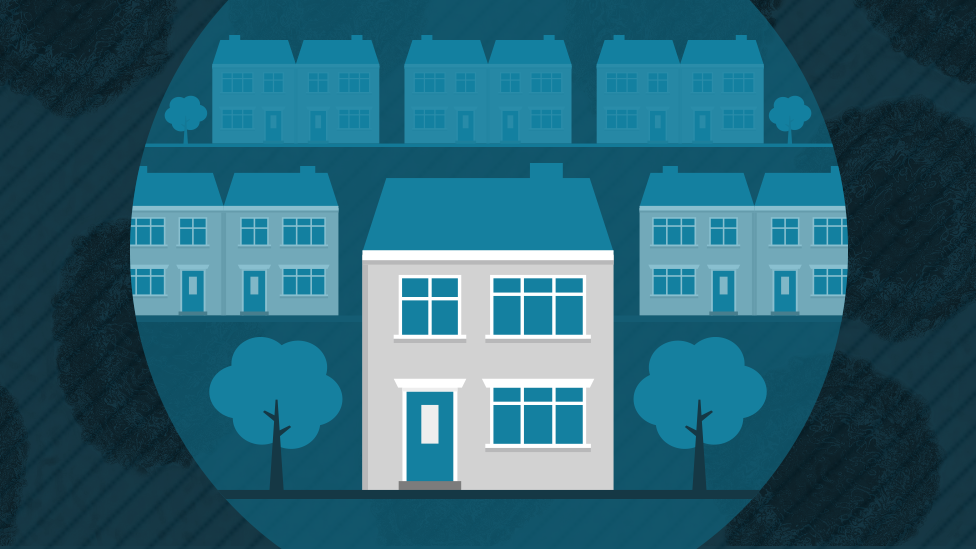
- Published2 December 2020
